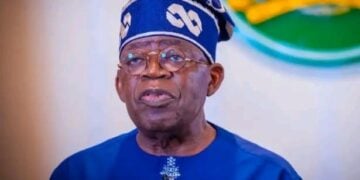Senior Special Assistant to the President on Citizenship and Leadership, Rinsola Abiola, has urged young entrepreneurs to embrace ethical leadership and social responsibility, and commit to continuous learning to build enduring enterprises that inspire positive change.
This, she said, in a keynote address she delivered at the 2023 Junior Chamber International (JCI) Unity Convention in Abuja last weekend.
Commending JCI for uniting young leaders dedicated to collective growth and advancement, Ms. Abiola emphasised the importance of collective responsibility, especially in a youth-dominated country like Nigeria.
“Encouraging young people to take responsibility and act is an important obligation without which we cannot achieve our national goals.
“In Nigeria today, young people have emerged as catalysts for change, introducing innovations and establishing enterprises, both small and large, to address societal challenges.
“These ventures hold the promise of transforming the way we live and work, offering solutions that shape a better future,” she stated.
She, however, noted the tendency of some enterprises, including those founded and led by young people, to falter over time due to a lack of adherence to essential ethics and principles.
To remedy this, Ms. Abiola outlined key principles for sustainable leadership, notably visionary leadership and adaptability.
“Sustainable leadership requires a visionary approach. Successful leaders, particularly in the realm of entrepreneurship, possess a clear vision of their enterprise’s purpose and impact on society.
“This may sound like a cliché, but its importance cannot be overstated. Vision guides decision-making, motivates teams, and sustains the enterprise through challenges,” she added.
She cited the Minister of Communication and Digital Economy, Dr. Bosun Tijani, as an example, highlighting the success of the Co-Creation Hub he established in Lagos at the dawn of the digital age in the country and its impact in making Nigeria a relevant actor on the tech scene.
“Consider the example of Dr. Bosun Tijani, the Honorable Minister of Communications, Innovation, and the Digital Economy. In 2011, he co-founded the Co-Creation Hub. His vision was ambitious but clear: he foresaw a Nigeria that not only embraces the digital age but leads it. It was an unprecedented effort. We were only just becoming familiar with the changes brought about by the introduction of the GSM.
“Yet, this man believed that Nigeria could become a source of digital solutions with an impact that transcends our borders. Driven by that vision, Dr. Tijani and his team made decisions that distinguished CC Hub as the epicenter of Nigeria’s most innovative startups.
“These choices, many of them made without a guidebook from the past, set in motion a chain of events that resulted in Dr. Tijani’s elevation to the federal cabinet today,” she said.
She also underscored ethical leadership as the foundation of lasting enterprises, with a focus on ethical business practices, transparency, and social responsibility for building trust and ensuring sustainability.
“A commitment to ethical business practices builds trust with customers, partners and the community at large. Upholding integrity, transparency, and social responsibility not only ensures the sustainability of the enterprise but also contributes to the overall well-being of our society.
“As leaders, we must prioritize ethical considerations in every decision we make. Investor funds should not be committed to personal vanities while the stated mission suffers. Professed values must be reflected in actions.”
She encouraged a culture of continuous learning and highlighted the interconnectedness of sustainable leadership and social responsibility, urging enterprises to recognize their role in addressing societal challenges and contributing to a just and equitable society.
“As young leaders, you have the unique opportunity to shape the future. But this can only happen if you embrace the responsibility and take up leadership roles. John Kennedy, the 35th president of the United States of America, told a country in the throes of a deep recession some decades back to ask not what your country can do for you, but what you can do for your country.
“Not because he was trying to shield the government from due accountability to the public or because he believed that citizens should be the easy scapegoats when things go wrong.
“Rather, it was because he understood the power of civic action, especially when driven by a sense of patriotic duty to the well-being of one’s nation.”
Ms. Abiola expressed optimism about the positive impact each participant would make in their leadership journeys, emphasizing that sustainable leadership goes beyond business success to include leaving a lasting impact on society.











